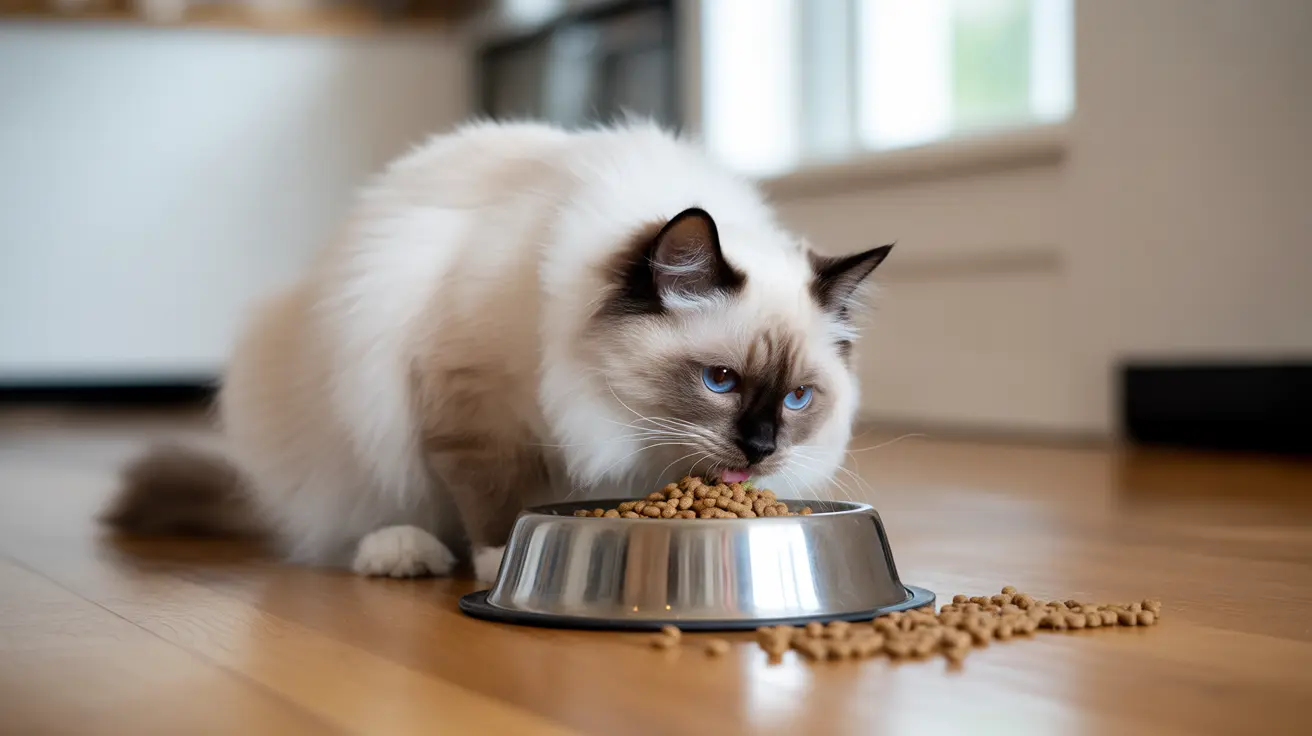Understanding Changes in Your Cat's Eating Speed
When your cat starts eating slower than usual, it's natural to feel concerned. This change in eating behavior can range from a temporary response to environmental factors to a sign of underlying health issues. Understanding why these changes occur and knowing when to seek veterinary care is crucial for maintaining your cat's well-being.
As responsible pet owners, it's important to monitor our cats' eating habits closely, as changes in eating speed can often be the first indicator of various health or environmental issues. Let's explore the common causes and solutions for this behavioral change.
Common Medical Reasons for Slow Eating
Dental Issues and Oral Pain
One of the most frequent medical causes of slow eating in cats is dental problems. With over 70% of cats over age three experiencing some form of dental disease, this is a significant concern. Signs of dental issues include:
- Drooling while eating
- Bad breath
- Visible redness or inflammation of gums
- Pawing at the mouth
- Dropping food while eating
Internal Health Conditions
Various internal health issues can cause your cat to eat more slowly, including:
- Gastrointestinal disorders
- Kidney disease
- Inflammatory bowel disease
- Upper respiratory infections
- Parasitic infections
Environmental and Behavioral Factors
Stress and Anxiety
Cats are sensitive creatures, and changes in their environment can significantly impact their eating habits. Common stress triggers include:
- Moving to a new home
- Introduction of new pets
- Changes in daily routine
- Modifications to their living space
- Loud noises or construction
Food-Related Issues
Sometimes, the cause may be related to the food itself:
- Recent changes in food brand or type
- Food temperature (many cats prefer room-temperature meals)
- Food bowl location or type
- Competition from other pets during mealtimes
When to Seek Veterinary Care
While some cases of slow eating may resolve on their own, certain situations warrant immediate veterinary attention:
- Slow eating persisting for more than 48 hours
- Accompanying symptoms like vomiting or diarrhea
- Noticeable weight loss
- Signs of pain or discomfort
- Changes in water consumption
- Lethargy or behavioral changes
Solutions and Prevention
To help your cat maintain healthy eating habits:
- Maintain regular veterinary check-ups, including dental examinations
- Create a calm, quiet feeding environment
- Use elevated food bowls if appropriate
- Warm food to room temperature
- Consider wet food if dental issues are present
- Monitor eating habits daily
Frequently Asked Questions
Why is my cat eating slower than usual after a recent change in their food?
Cats can be sensitive to food changes, often requiring time to adjust to new textures, flavors, or formulations. Always transition to new food gradually over 7-10 days by mixing increasing amounts of new food with the old food.
How can dental problems cause my cat to eat more slowly, and what signs should I watch for?
Dental problems can cause pain during eating, leading to slower consumption. Watch for drooling, bad breath, bleeding gums, pawing at the mouth, and dropping food while eating. These symptoms warrant a veterinary examination.
Could stress or changes in the environment be making my cat eat slower?
Yes, cats are very sensitive to environmental changes. New pets, moving homes, or even rearranging furniture can cause stress-related eating changes. Creating a calm, consistent environment can help normalize eating habits.
When should I take my cat to the vet if they are eating slowly and showing other symptoms?
Seek veterinary care if slow eating persists for more than 48 hours, especially if accompanied by other symptoms like vomiting, diarrhea, weight loss, or behavioral changes.
What tips can help encourage a slow-eating cat to eat more comfortably and quickly?
Try warming food to room temperature, providing a quiet eating space, using elevated bowls, offering wet food, and maintaining a consistent feeding schedule. If dental issues are suspected, softer food options may help.
Final Thoughts
While a cat eating slower than usual can be concerning, understanding the potential causes and appropriate responses can help ensure proper care. Always monitor your cat's eating habits and seek veterinary care when necessary to maintain their health and well-being.






